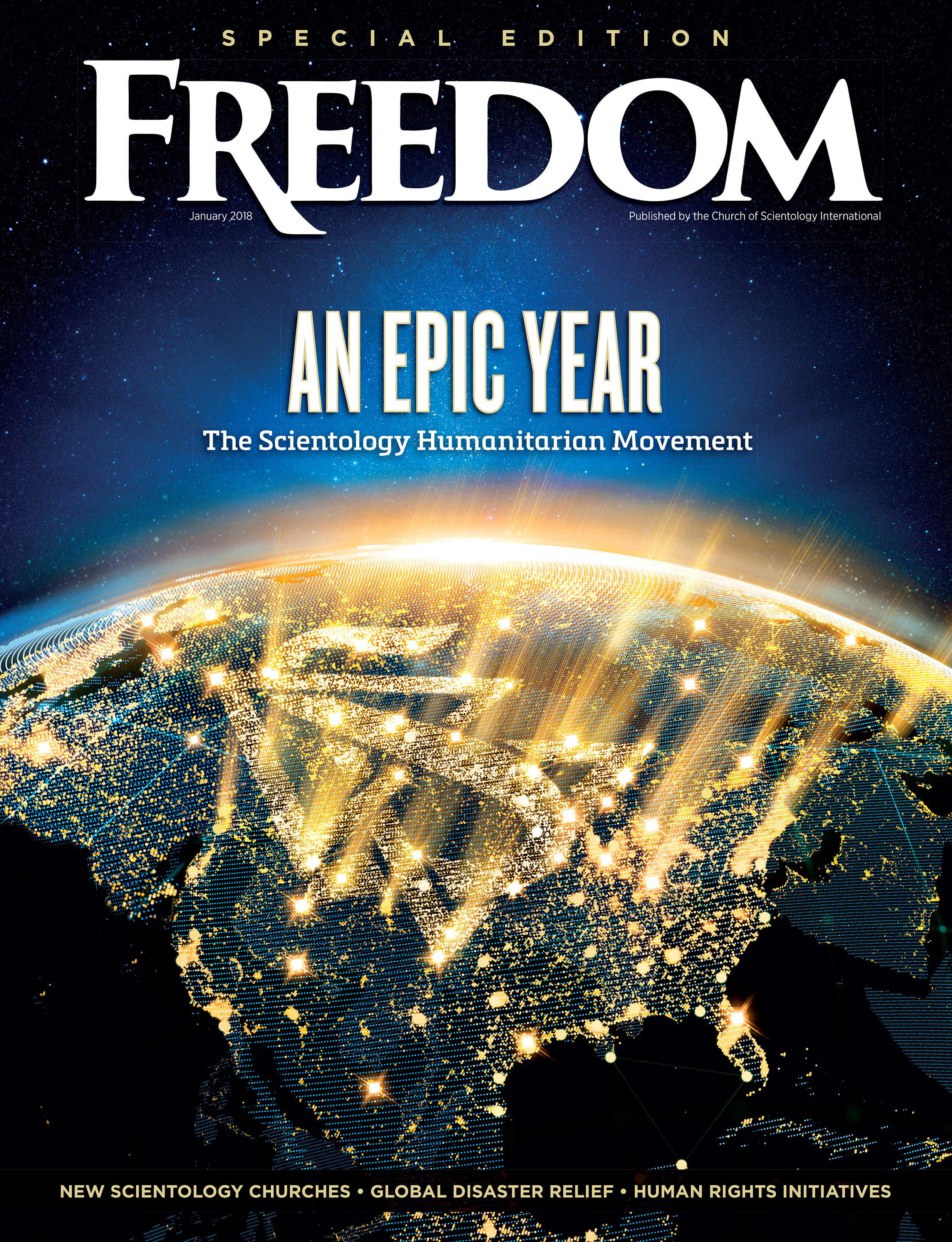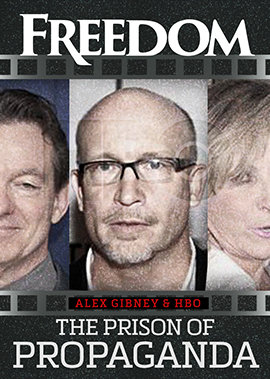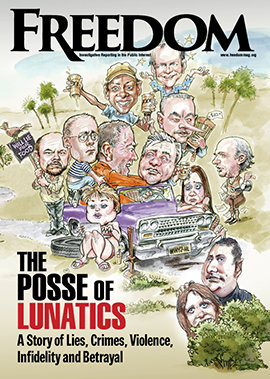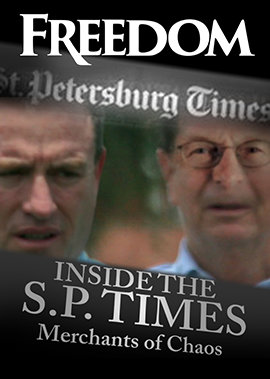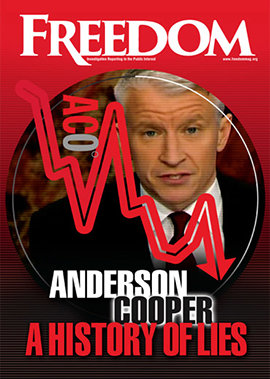Few films have done more to spread awareness about the scourge of sex trafficking in Cambodia than Finding Home, a two-hour documentary directed by the Missouri-based filmmaker Derek Hammeke and produced in partnership with Rapha House, a US-based nonprofit that provides safe houses for underage victims of trafficking in Southeast Asia.
Aired on Scientology Network’s Documentary Showcase in May, the award-winning film is Hammeke’s first full-length feature documentary, and it provides a deeply personal glimpse into the aftermath of trafficking. Shot over three years, the film also reveals the harrowing experiences of survivors of human and sex trafficking in Cambodia, vividly portraying their journeys toward healing, while underscoring the crucial role of activists—not just in exposing Cambodia’s dark secret but also in helping trafficked girls find acceptance, community and a place to call home, literally as well as metaphorically, as they embark on new lives.
The average age of girls when they first arrive at Rapha House is 12, “but we have had children much younger than that come to us,” says Jen Osgood, Director of Client Services at Rapha House. “We’ve had little girls come at the age of four.”
“You can walk into a restaurant and have somebody ask you if you want a girl.”
Stephanie Freed, who is Rapha House’s co-founder and US director and the film’s primary narrator, offers the example of a child who was told by a Rapha House staff member that she looked beautiful in her new school clothes. “No, I don’t want to be beautiful,” the girl replied, “because if I am beautiful, bad people might come here and do bad things to me.”
Some of the “bad things” done to trafficked girls are worse than horrendous: One girl’s eyes were so gouged, says Freed, that they had to be surgically removed, leaving her blind.

Finding Home opens with images of Cambodia’s verdant landscape, dotted with stunning centuries-old Buddhist architecture. Against this backdrop, Freed says: “When a girl has been trafficked, her life is changed forever. It’s never going to be the same again.”
Freed recounts the case of a young Cambodian girl who was a slave in a junkyard owned by a large family that also lived there. “The little girl was their slave during the day, and she was raped at night. I want people to understand that children who are labor trafficked are very often sexually exploited as well,” she explains.
At once horrifying and humbling, Finding Home offers a sensitive and haunting look at a despicable chapter in contemporary Cambodian society: The groundwork for the sex trafficking of young girls was largely laid during the aftermath of the Khmer Rouge, the brutal and genocidal 1970s communist regime whose rule in Cambodia resulted in a civil war that claimed an estimated 2 million lives—many of them through torture or starvation—and devastated not just the country’s economy but its entire social fabric.
Finding Home also highlights how Western activists have emerged as pivotal players in the fight against sex trafficking in Cambodia. Through rescue operations, rehabilitation programs and global advocacy, they strive to save and restore the lives of trafficking victims while exposing the dark realities of sex trafficking and pushing for a future where all Cambodians can live free from exploitation.
For her part, Freed knew for years of her father’s involvement in anti-trafficking activities in Asia. He asked her to join his efforts. “When I learned what was happening involving children, there was no way I couldn’t be involved,” she says.
It’s a sentiment that Hammeke fully shares—and hopes to spread around the world. “I’m hopeful that in watching the film, [viewers] will get a greater understanding of how trafficking can happen within this world. It’s important for us to know some of the hard things that this world has out there so that we can change those things.”
During the filming of the documentary, Hammeke went undercover as a “john” to expose Cambodia’s sex trafficking world. He described being taken to a room in a brothel where trafficked girls were exhibited with numbers attached to their clothes.
In filming trafficking survivors for their interviews, Hammeke explains, “I would always tell them that ‘I want you to know that this microphone right here, your voice is going to go into it, and it’s going to go into this recorder box, be stored on this memory card, and I’m going to take it all the way across the ocean, and my hope is the world will see this. And the world is going to hear what you’re saying right now.’”
The film follows the lives of several trafficked girls. One of them is Sophorn, whose tragedy is typical of thousands of young girls like her who are trafficked in Cambodia.
“The places these girls are taken to don’t always look like what you would think,” says Freed. “Brothels can be in any kind of establishment—a restaurant, a massage parlor, a telephone shop. You can walk into a restaurant and have somebody ask you if you want a girl. Sometimes there may be a big neon light but sometimes it can be just a shack with rotting wooden boards and a sewer.”
Sophorn fell into the sex trade when she was 14 years old. Before that, she would often visit the hospital where her mother worked. “The other staff at the hospital really loved this little girl that was running around, and they watched her grow up over several years,” says Freed. “One day, she didn’t show up at the hospital after school.”
As Sophorn tells it, her mother was at work that day and did not know where her daughter was going. “I quit school, I needed to find a job—I saw others finding jobs. They had enough money. I wanted to help my mom.” A friend persuaded Sophorn to accompany her. “I thought I could make a lot of money, then come back and go to school,” Sophorn says.
After a three-hour drive in a taxicab, accompanied by a man, Sophorn and her friend reached Siem Reap, Cambodia’s second-largest city and a popular tourist destination. There, they changed taxis and headed for the Thai border. “I thought I was going to be a waitress—that I would get a good salary,” says Sophorn. Instead, she was told that she would have to “accept customers.”
“I started to cry, and refused to do it,” Sophorn recalls. “The boss said that I owed him money, and if I didn’t do it, how would I pay him back for the taxi?” Afraid of repercussions, Sophorn agreed to her boss’ demands “so I could pay back the money and leave.”
Like many victims of trafficking in Cambodia, Sophorn was afraid that if she didn’t pay her debt, it would, according to her Buddhist faith, result in misfortune. “She could have bad karma,” says Freed, “because if you owe a debt to somebody, and you don’t pay them, this is what can happen in the Buddhist faith.”
It’s an aspect of the faith that traffickers readily exploit. “[They] are so smart and clever,” says Freed. “The layers of deceit and manipulation run deep.”
Sophorn languished for months at the brothel, where she was repeatedly raped. She was eventually able to contact a family member and raise the $100 she owed to buy back her freedom from the clutches of the traffickers.
But her problems weren’t over. Subsequently, while she was at Rapha House, Sophorn discovered that she was more than two months pregnant. She ended up having the child—a girl named Sarah Rose—who was subsequently placed under the care of a local children’s home run by Christian missionaries.
Freed describes Sophorn as a “firecracker” full of emotions. A gifted artist who designs exquisite jewelry, she is brimming with “personality, personality, personality,” says Freed.
When she sees other countries more modern than Cambodia, says Sophorn, she longs to “be like them.” But, she says, “that’s impossible. I was born into a poor family. In Cambodia, we have a lot of people who look down on each other. And especially the trafficked children. They don’t understand about the children.”
“If Sophorn can overcome the humps and difficulties she’s facing right now in her healing, she’s going to be a strong, successful, independent woman,” says Freed.
Otherwise, Sophorn will likely end up in the same shoes worn by Jonti, a young girl who came to Rapha House but chose to return to prostitution.
“In this kind of work, we do have failure, and some of the girls don’t make it,” explains Freed, who tried unsuccessfully to persuade Jonti to come back. The last time Freed saw Jonti, she had sores all over her body. “I pleaded with her to leave that life,” says Freed. “She was dead at 17.”
Overcoming the demons from their past is always a challenge for victims. In fact, many of them are no different than Sophany, another trafficked girl whom Freed describes as exceptionally hardworking and devoted to a simple life.
“Really, she just longs for her family and for home,” says Freed, “and that can be a really difficult thing to find in Cambodia.”








